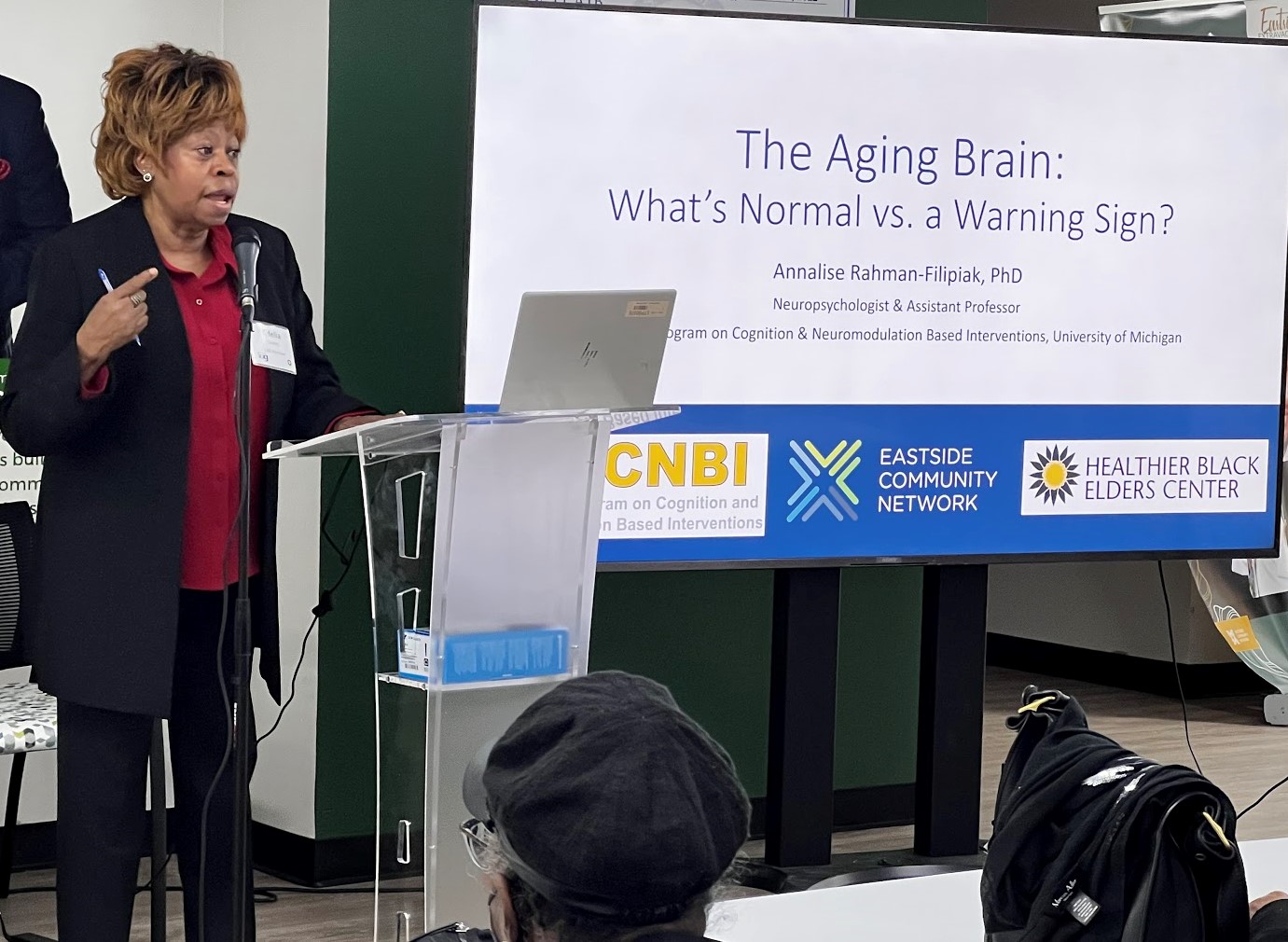Unique Consultancy of Older Adults Guides Research and Outreach

For more than two decades, the Healthier Black Elders Center (HBEC) has worked to reduce the significant health disparities between older African Americans and their Caucasian counterparts. The focus has been on recruiting more minority members to participate in research projects and to provide quality community education and outreach to encourage health enhancing behaviors.
In 2020, HBEC launched a new initiative to further encourage the participation of older African Americans in research. The Consultancy Program enlists members of HBEC's Community Advisory Board (CAB) to advise on how research projects and public presentations can be tailored to more deeply engage the community.
Coordinated by HBEC Coordinator Vanessa Rorai, MSW, and HBEC Faculty Leader Tam Perry, PhD, the consultants are hired by researchers and organizations to provide feedback on issues such as project design, materials, disseminating results, and protocols, and to help public presentations like workshops, conferences and podcast, use best practices to engage older adults in research.
HBEC CAB member Adelia Cooley finds her work on the consultancy team deeply rewarding. "I am not only offering my recommendation and expertise, I'm gaining knowledge and awareness that I may not have otherwise acquired. My consultancy role is a two-way street: I gain understanding and I give understanding."
Proceeds from the consultancy support the work of the HBEC, its CAB members and HBEC leaders who participate in each consultancy. Seventeen consultancies have been completed with a wide range of outcomes. Eight of those engaged CAB members, Ms. Rorai, and Dr. Perry, in one-on-one sessions to provide feedback on specific research projects. These projects focused on caregiving, adapting technology for older minorities, adherence to glaucoma medication, designing a protocol to appropriately reveal results in Alzheimer's research, and guided a large foundation on funding priorities.
"These consultancies have made incredible improvements to researchers' projects," said Ms. Rorai. "CAB member feedback made the protocols more accessible. They re-worded focus group questions to be clearer and developed more impactful recruitment strategies. They also contributed to large technology companies like Google partnering with us to improve voice technologies for older African American adults."
The remaining consultancies looked at using best practices in public presentations to increase minority participation in research, improve recruitment strategies, and develop active advisory boards. Audiences include students, faculty, community members, technology companies, and non-profit foundations.
Dr. Perry will share the results of the consultancy in an upcoming issue of "Generations," a publication of the American Society on Aging that focuses on civic engagement as a pillar of productive aging. "This program has really made our members' voices matter in developing projects and funding initiatives, and in mentoring researchers," she said. "We thank our CAB members for their initiative, dedication and enthusiasm."